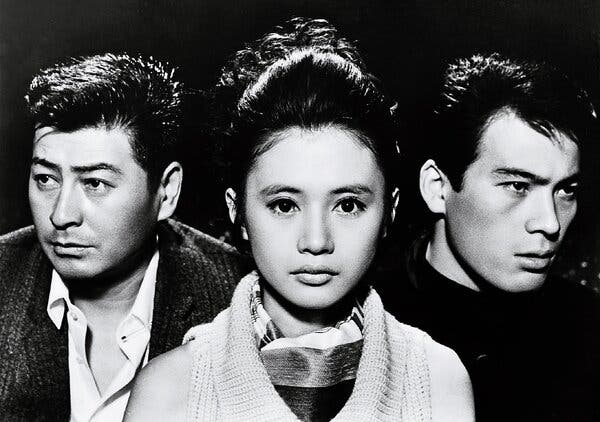Masahiro Shinoda, a leading director of the postwar Japanese New Wave whose films, notably “Pale Flower” and “Double Suicide,” fused pictorial beauty and fetishistic violence, died on March 25. He was 94.
His production company, Hyogensha, said in a statement that the cause was pneumonia. It did not say where he died.
In the 1960s and ’70s, Japanese New Wave cinema, like its French predecessor, tapped into the fantasies of disgruntled youth by embracing brazen sexuality and countercultural politics, with a tinge of nihilism.
But unlike his peers, Mr. Shinoda refused to shun tradition. Instead, he used feudal-era theatrical forms like Noh, Bunraku and Kabuki to recount how cycles of violence have persisted since imperial Japan. His films were wrought with poetic imagery — hooded puppeteers, striking femmes fatales (including his wife, the actress Shima Iwashita) — but for all their sensuality, they espoused the idea that nothing really matters.
“Culture is nothing but the expression of violence,” Mr. Shinoda said in an interview with Joan Mellen for her book “Voices From the Japanese Cinema” (1975), adding that “human tenderness is unthinkable without violence.”

From left, Ryo Ikebe, Mariko Kaga and Takashi Fujiki in “Pale Flower” (1964), Mr. Shinoda’s best-known film.Credit…Shochiku